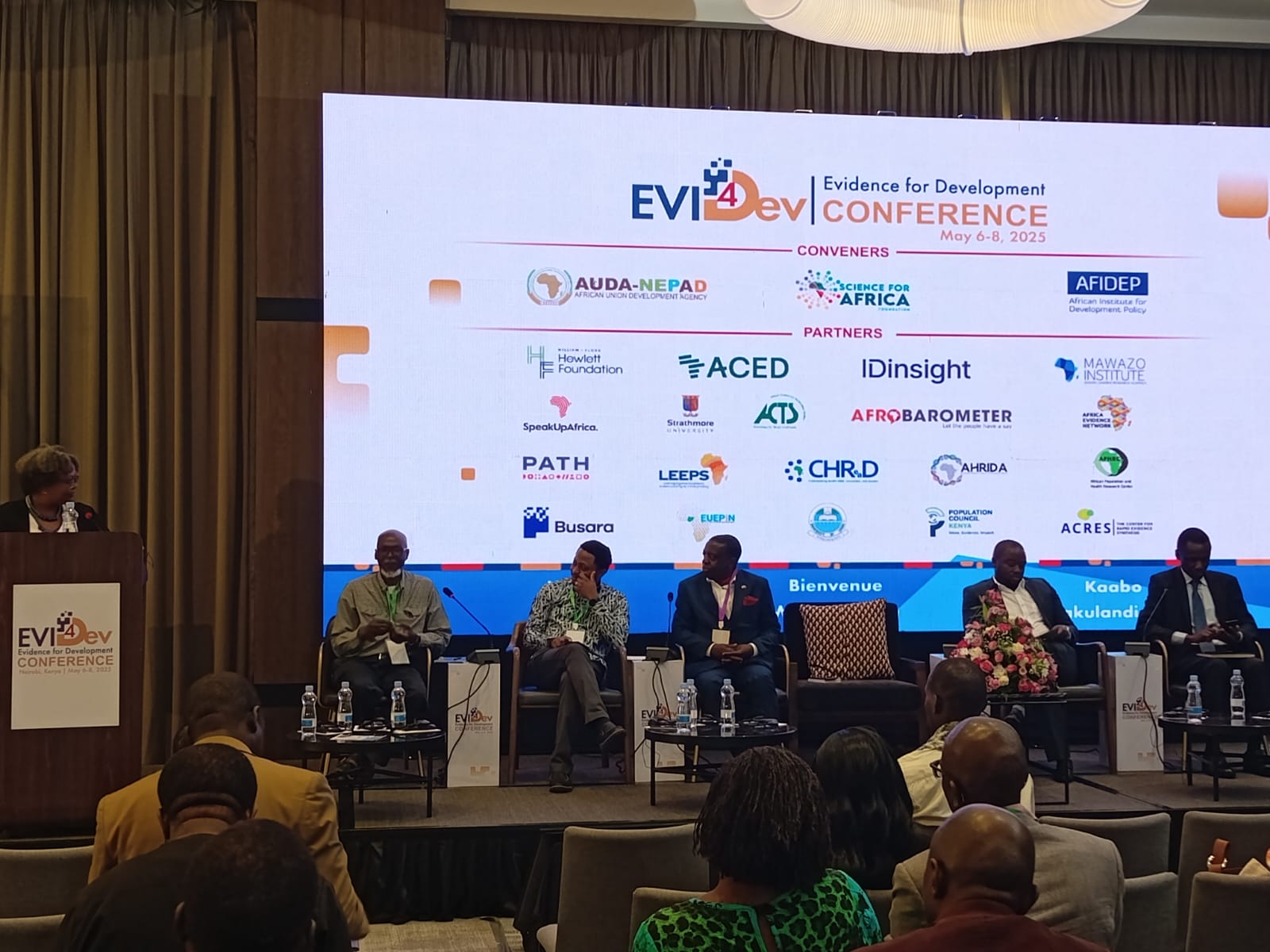A panel on African economists and policy drivers during the Evidence for Development Conference in Nairobi on May 7, 2025.
A section of economists and policy drivers from across Africa
have sounded an alarm over rampant financial wastage undermining the continent’s
healthcare growth.
They highlighted the urgent need to plug fiscal leakages,
curb public sector wastage, and take bold innovative steps toward financing the
continent’s healthcare development.
Their calls come at a time when foreign aid flows, notably
from the United States, have been shrinking exacerbating the need for homegrown
solutions to solve some of the ongoing challenges.
Speaking during the Evidence for Development Conference in
Nairobi on Wednesday, Presidential Advisor on Health Financing in Kenya Daniel
Mwai pointed to the fragmentation of services and vertical health programmes as
key barriers to efficient health financing.
“We can cut the cost of healthcare in Africa by 40 percent if we
reorganise and plan well in its delivery,” Dr. Mwai stated, calling for
integration and multi-skilled healthcare workers. He urged countries to focus
on preventive healthcare as compared to curative healthcare.
IEA-Kenya CEO Kwame Owino during the Evidence for Development Conference in Nairobi on May 7, 2025.
Institute of Economic Affairs (IEA-Kenya) CEO Kwame Owino
emphasised the need for fiscal discipline and efficient resource utilisation in
Africa’s healthcare systems.
“Citizens across East Africa are reaching their limits, the
protests last year in Kenya were a clear sign. We must get the most from the
taxes by prioritising high-impact public goods and reducing wastage through
corruption. Governments must spend conservatively in areas with the greatest
public demand.”
His remarks were reiterated by Economic Planning Principal
Secretary Patrick Zimpita, Malawi who highlighted a troubling trend where some
leaders faced public backlash for spending more money on travel and ceremonial
expenses to launch development projects than the actual value of the projects
themselves.
He pointed out that such actions not only undermined public
trust but also raised concerns about fiscal responsibility.
Zimpita emphasized
the need for efficient use of national resources to prioritise impactful
development in the health sector.
Senior Policy Analyst at the African Institute for
Development Policy (AFIDEP) Jackson Otieno proposed innovative options such as
health taxes, and robust anti-corruption measures that could unlock up to 5–10
percent in savings.
He also highlighted the need for expanding health insurance
coverage, integrating technologies like Artificial Intelligence (AI) to
minimise waste, and strengthening financial oversight.
Homabay Health CEC Roselyn Omollo address during the Evidence for Development Conference in Nairobi on May 7, 2025.
Representing subnational leadership, Homabay County Executive Committee member Roselyn Omollo shared practical strategies
the county is using to reduce delivery costs and improve health outcomes at the
grassroots level.
These include a community-led approach to healthcare,
engaging citizens to take responsibility, and boosting enrollment into the
Social Health Authority (SHA).
“When we talk about medical insurance, the question is
always about efficiency and effectiveness,” Omollo said.
“In Homa Bay county, we are reducing costs and increasing
coverage by adapting local solutions that resonate with our communities.”
Experts called for homegrown solutions, stronger stakeholder
engagement, and strategic investments in health-focused technology and
financing models.
“There is a need to unlock the potential of new technology,”
Executive Director of the African Economic Research Consortium (AERC) Professor
Murinde said.
“The adoption of AI, big data, and machine learning is key
in identifying best practices and reducing inefficiencies.”
As countries face pressure to deliver quality healthcare
amid shrinking budgets, experts agreed that bold reforms, partnerships, and
innovation should take center stage.
The conference is co-convened through a strategic
partnership between the African Union Development Agency (UDA-NEPAD), African
Institute for Development Policy (AFIDEP), and Science for Africa Foundation (SFA
Foundation), along with leading institutions in the science, data, research,
and innovations space in Africa and beyond.


